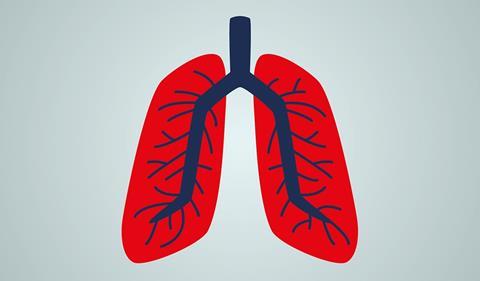Dr Mick Peake notes that a multipronged and co-ordinated approach to the management of lung cancer can help the UK improve its survival rate

Whilst there have been improvements in one and five-year survival rates over the last 10 years, which are likely to be the result in more than doubling of the number of patients undergoing surgery for their lung cancer since 2005, the UK still lags behind many other comparable countries in terms of survival.
Even in those countries with the very best outcomes, survival beyond five years is seen in less than a quarter of patients.
The main reasons for this are firstly late stage at diagnosis, wide variation in the proportion of patients receiving active treatment within the UK and the limitations of current treatments.
However, if we were to significantly increase the proportion of patients diagnosed at an early stage of their disease and at the same time ensure that every patient treated within the NHS received optimal and timely treatment, the UK Lung Cancer Coalition believes that by 2025, we could see 25 per cent of patients in the UK living to five years and beyond.
To do this, there needs to be a multipronged and co-ordinated approach to the management of lung cancer in the NHS and with several new, and very welcome, initiatives from NHS England, this is the time for us to “strike while the iron is hot”!
The essential elements are:
- to use the data from the NLCA and National Cancer Registration and Analysis Service to support trusts and the Cancer Alliances should identify where there is unwarranted variation in treatment and outcomes and to identify the reasons and tackle them. The UKLCC welcomes the potential to explore this also with the Right Care team in an Atlas of Lung Cancer Variation and the introduction of a “Get it Right First Time” programme for lung cancer.
- to increase the proportion of patients diagnosed at an early, and potentially curative stage, we need to implement targeted screening and lung health check programmes across the country as widely as possible and we welcome the significant funding that NHS England have recently announced to begin this process. However, we believe that there should be a full national screening programme, without which we run the risk of adding to the “post-code lottery” of care and running local programmes which are not properly resourced, quality assured or sustainable in the long term.
- screening will not be enough to lead to the huge stage shift towards 75 per cent of patients being diagnosed at stages 1 and 2 that is the ambition in the new NHS long-term plan. We need to continue with a range of public and primary care awareness initiatives and the Cancer Alliances, perhaps in collaboration with the Be Clear on Cancer team who are well placed to do this.
- as well as early diagnosis by achieving a stage shift, there is also a need for rapid diagnosis once lung cancer is suspected and the NHS needs to roll out the National Optimal Lung Cancer Pathway as rapidly and as universally as possible. NHSE says that work should already be underway to ensure that the challenging 49 day to treatment target can be met from April 2020. A recent UKLCC report called Millimetres Matter pulls together evidence and examples of best practice from an expert workshop held in 2018 about the evidence for rapid diagnosis.
- there have been many major advances in the understanding of the biology of lung cancer in recent years and the emergence of some very effective targeted treatment in the form of such things as tyrosine kinase inhibitors and, more recently immunotherapy. In a proportion of patients these treatments, or a combination of them, can lead to dramatic extensions of survival even when they have very extensive and metastatic disease. However, the ability for NHS clinicians to prescribe them depends on
- approval for their use by National Institute for Health and Care Excellence or the Cancer Drugs Fund, and
- on the patient having a timely, appropriate and accurate test for the precise molecular biology of their individual lung cancer. This is dependent on universal access to such a service. The conclusions of a recent expert workshop on the issue of molecular diagnostics in lung cancer, pulled together by the UKLCC and its findings reported in Molecules Matter (launched today, 25th January 2019), concludes that the NHS has a long way to go before that is achieved. While a lot of attention has been paid to the potential for Next Generation Sequencing panels of tumour markers, the practical issues of how that gets out to every patient in every area have not yet been solved.
In summary, the pieces are there to pull together the “jigsaw” of care which could lead to a dramatic improvement in outcomes and standard of overall care for lung cancer patients in England and the UK – we just have to take a multimodality approach.





























1 Readers' comment